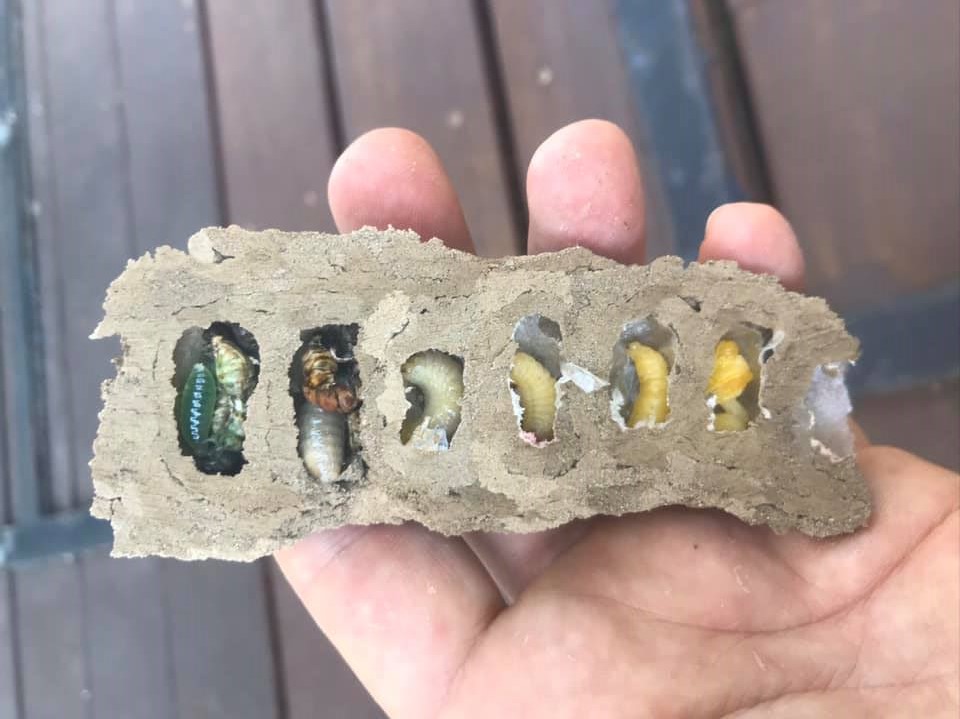Jay Turner is an award-winning urban pest control expert. He’s also a Rapid Training trainer, teaching our accredited courses in pest management. We interviewed Jay to find out what motivated him to become an urban pest control manager, and what he loves about his job.
Story of an urban pest control manager
Ever since he was a kid Jay has kept snakes and lizards, scouting for the creatures and bugs they eat. He’s never been afraid of finding his own pets too, from scorpions to tarantulas.
As a result, it wasn’t long before he’d learnt about the lifecycles, life stages, behaviour, feeding and breeding habits of his pets. And his knowledge extended to the creatures they fed on – creatures which are often referred to as pests.
Husband and wife team
After school Jay got a degree in biological sciences. He volunteered at a wildlife park and within a week he was offered a paid position. He stayed with the park for four years, working with reptiles, birds of prey and mammals.
He also met up with Nicky, a girl he’d been to pre-school with. After their paths crossed again, they began dating. Nicky hates critters of all shapes and sizes. However, from the start, she appreciated Jay’s knowledge and love of them.
Jay and Nicky started breeding insects together as a hobby. They bred bugs like crickets, spiders, roaches, scorpions, and worms. Their hobby soon turned into a commercial enterprise. They found themselves breeding, packing, and distributing bugs by the bucketload to pet shops.
Scorpions and tarantulas were sold as pets, while crickets and other insects were sold as feeder insects for bearded dragons, treefrogs and iguanas.
Jay and Nicky eventually diversified to managing pests rather than breeding them. And, after six months of working as a trainee pest controller, Jay began studying for his Certificate III in Urban Pest Management at TAFE.

Certificate in Urban Pest Management
On the first day of lessons, Jay questioned, corrected, and answered everything the lecturer had to say. Midway through the lesson, he decided this wasn’t the best way to start the year. And so for the remainder of the lesson, he sat quietly, observed and listened.
At the end of the lesson, the lecturer called Jay over. He wanted to know who he was and how he knew so much about pest control. Jay’s background in owning and breeding critters, his degree in science and the six months of on-the-job training he’d had gave him a unique and diverse skillset.
The lecturer had a background in agriculture. He knew about pesticides and agricultural pests whereas Jay knew about urban pest management. As a result, Jay had firsthand knowledge which complemented that of the teacher.
So, for the rest of the year, Jay and his lecturer teamed up and worked on ideas together. They talked through classwork and bounced ideas off each other.
The student becomes the teacher
Jay’s lecturer also invited him to teach some of the units on insect classification and biology. This was great fun for the class because Jay brought in live specimens from home. At the end of the course, Jay graduated with the highest score of any student who went through the course in his state.
At graduation, the Head of Department came over to ask him if he’d be interested in sessional teaching and said he’d call him in the new semester. When Jay received the call, he asked what units in the course they would like him to teach When the Head of Department, said “all of them.” Jay was completely surprised.
When the former lecturer had resigned, he’d given the TAFE Jay’s name as the appropriate person to take over from him. And so it was that Jay became the lecturer for Urban Pest Management at the TAFE campus.

Understanding urban pest control
Jay says that he really learned a lot from becoming a teacher and all of that he’s fed into his role at Rapid Training. He explains that “when you’re teaching a topic and students are throwing questions at you, that’s when you need to know your field inside and out. That’s when you really learn a lot.”
His teaching style was (and still is) very innovative. In addition to regular lectures, he would hold open discussions and invite field experts from across the pest management industry. His class would explore different methods and tools, comparing them and looking for the best solutions.
Chemical suppliers and pest control reps would share their firsthand knowledge with his class. At times, Jay and his class would go into the parking lot and investigate the pest management set up that would be necessary to take along on the job. While Jay’s students were able to access and learn the latest and best methods, he learned a lot too.

How to become an urban pest control manager
Are you interested in becoming an urban pest manager? Jay teaches our Rapid Training courses on pest management – you’re in expert hands with him.
In addition to the Certificate III in Urban Pest Management we have a large variety of simple online courses. These include courses in pest control, pest management and reporting. Bonus – if you’re a Rapid Solutions client, you may be eligible for a 10% discount on certain courses.
Contact us now to find out more.
Urban pest control – over to you
In addition to being a Rapid Training trainer, Jay runs his pest control business with his wife Nicky. He says he loves being an urban pest control manager. Each day and every job bring something new.
Jay loves that he gets to spend every day talking about and dealing with the biology of critters. He enjoys the variation and says, “you just never know what you’re going to walk into with each job.”
Are you an urban pest controller (or would you like to become one)? Tell us what motivates you in the comments.

